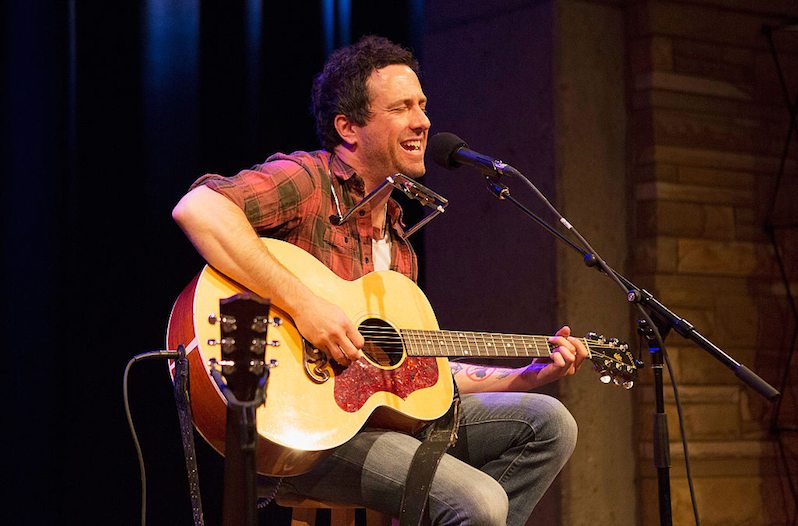This week, the U.S. Second Circuit Court of Appeals gave songwriters and publishers a big victory. And the court's ruling is particularly important for country music.
The big issue basically came down to licensing. And in this case, the court ruled that longstanding "consent decrees" allowed for fractionalized licensing in music. That affects how songwriters get paid, which is what keeps country music moving forward.
What you need to know about the songwriting biz
For starters, very few songs nowadays come solely from one writer. In many cases, at least two or three writers contribute to a song. Sometimes the number of writers on a song reaches the double digits.
For instance, if an artist wants to borrow inspiration from another song and the result is something that really sounds like the first tune. They'll often list the writers of the first song as co-writers on the new song. A good example: Thomas Rhett's recent song, "Vacation." Because "Vacation" sounded so similar to the famous song "Low Rider," Rhett and company listed the original writers of "Low Rider" as co-writers on the tune. Which means a staggering 14 people have writing credits on the song.
Now, in order to fully get paid for it, each writer needs a publisher. That can be as simple as "creating" your own publishing company. Or, you can sign a deal with an already established company. Usually, that publisher gives you an advance (think loan) and agrees to set you up with other co-writes, as well as "pitch" your songs to artists.
In exchange, the publisher will take a percentage of what the song makes (usually either half or all of the publishing share, which is one half of the total amount a person can earn for a song).
What the heck is a "PRO"?
So who goes out and gets the money from a song every time it's played on the radio, on streaming services, in a club etc.? Those organizations are called "PRO's," which stands for Performance Rights Organization. There are three major ones in the United States: ASCAP, BMI, and SESAC.
Basically, a songwriter signs up for a PRO and enters their song details. When that song gets played in a "public" space, the PRO collects the money and gives it to the songwriter. The PRO is largely responsible for issuing "licenses" to anybody who wants to play the music in public (radio stations etc.).
Who was in court and why?
In music, we have what's called a "consent decree." It means you have to get permission to use music, especially if you're going to make money from it.
In a shocking decision a little while back, the Department of Justice ruled that the consent decree allowed for "full-works" licensing. Which means that if Johnny Commercial Director wanted to use a song, he only needed to get permission from one writer to use it, and he didn't need to tell the others.
So let's go back to Thomas Rhett's "Vacation" song. Let's say somebody wanted to use the song in a less-than-wholesome manner. Like, for instance, an adult film. Thomas Rhett *probably* doesn't want his music associated with that industry. But under the DOJ's ruling, that film director would only need to get permission from one of the 14 writers — or their representative — to make it happen.
Additionally, they wouldn't have to tell the others about it. Which means you could have your music somewhere you disagreed with, and you wouldn't know to demand money for it. Sound like a huge problem?
That's what BMI said — so BMI sued the DOJ for the decision. Judge Louis Stanton (of what's called a "rate court") agreed with BMI. Then the DOJ appealed the decision to the U.S. Second Circuit Court of Appeals. And guess what? They just agreed with BMI and Judge Stanton too.
Why it matters for country music
If music users only needed one writer to approve a song, many writers feared collaboration would all but die. That's because the administrative burden would essentially fall on PROs and songwriters.
Put simply, songwriters would stop working with people who weren't part of their PRO because they wouldn't know if they'd be able to get paid for it. Co-writing is the lifeblood of country music. Limiting the pool of writers people can work with for fear of not getting paid would cripple the industry's creative output.
If that all sounds complicated, it is. Songwriting rules are archaic and outdated by decades. A lot needs to happen in Congress if songwriters are going to survive. But this recent ruling is a serious victory that just might provide the spark to make positive changes for the good of the music industry.




